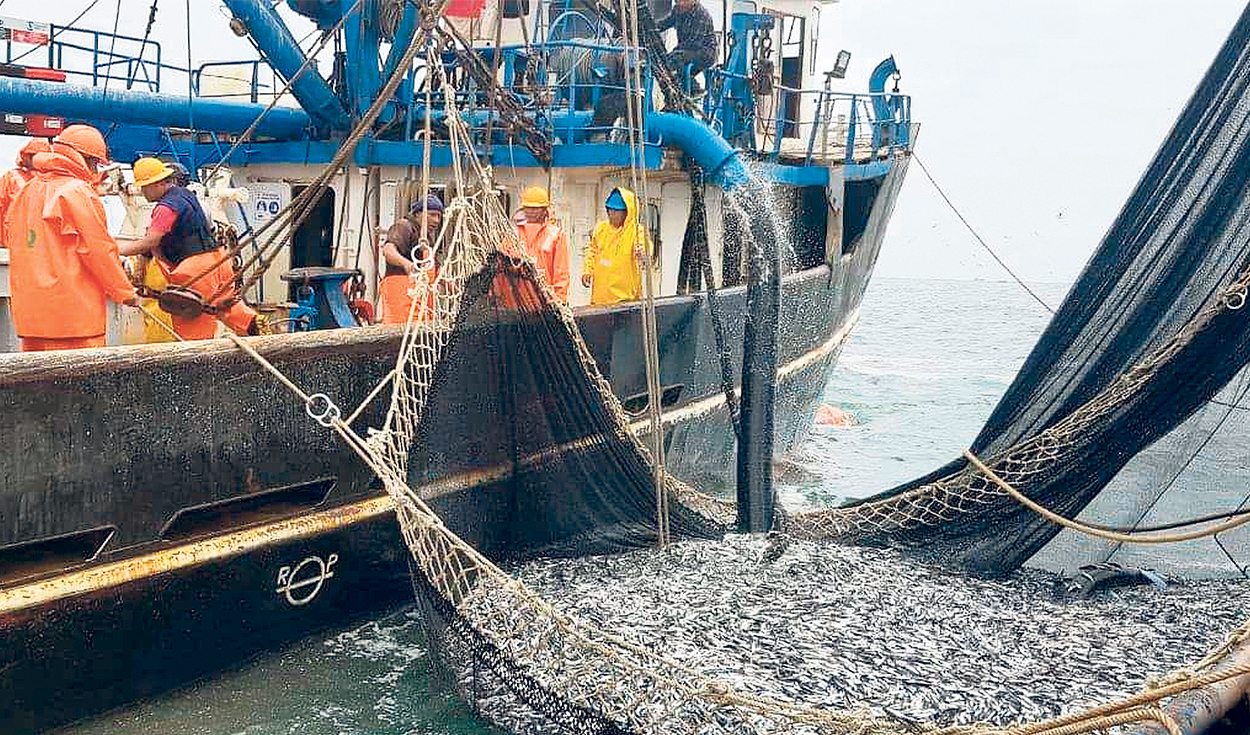
On January 19, Congressman Jorge Luis Flores Ancachi (Popular Action) entered the Congress a proposal “to recover productive activity in the fishing and aquaculture sector” through a new exceptional regime to reduce fines.
Legislative initiative 4025 indicates that natural and legal persons who have sanctions imposed by the Ministry of Production (Produce) can benefit from a reduction of up to 90% of their total fines.
The proposal is already in the Congress Production Commission. In this context, specialists consulted by The Republic They recommend that the working group shelve the initiative because it is detrimental to inspection in this sector and because it encourages more violations to continue, which threatens the sustainability of marine resources.
Measure has already been applied
In May 2022, Produce approved supreme decree 007 that allowed fines to be reduced by up to 90%, a rule that was questioned at the time because it was only justified by pointing out that it was for the benefit of artisanal and medium-scale fishermen who they had been affected by the pandemic.
“More than S/270 million in fines were forgiven and the main beneficiaries were not artisanal fishermen, but medium and large companies with a history of recidivism in the commission of infractions ”, specifies Carmen Heck, director of Policies at Oceana Peru.
For this reason, Heck points out that the true impact that the new proposal will have is to generate more incentives for offenders to ignore the law.
The initiative proposes that for fines of up to 50 UIT, which is equivalent to S/247,500, the 90%, while when it is greater than 200 UIT (S/990,000), the decrease cannot be greater than 50%. In addition, if the final amount to be paid exceeds the value of a UIT —which has a value of S/4,950 by 2023—, it can be divided into up to 12 monthly installments.
“What we find incongruous is that it is stated that the object of the law is to promote the payment of fines. Technically that doesn’t hold up,” Heck says.
The document also details that interested parties will have up to 120 business days to make their request, that is, 30 days more than last year.
For his part, the legal advisor of Marine Governance of the Peruvian Society of Environmental Law (SPDA), Percy Grandez, agrees that the proposal weakens fisheries control. “From a legal point of view, it contradicts and violates the principle of reasonableness established in the general administrative procedure law, which provides that paying a fine cannot be more beneficial than committing an infraction,” says Grandez.
The lawyer urges the Production Commission to file the project, because “generates impunity and affects the sustainability of the fishery”.
The nearest exit
In June 2022, Congresswoman Norma Yarrow (Avanza País) presented PL 2236, which proposes in the second complementary provision that the fine reduction regimes in the fishing and aquaculture sector, in no case, can be greater than 40%.
The proposal is in commission and has joined three other initiatives, whose forecast is being evaluated by the fishing working group since November 2022.
What is pending in the fishing sector
For the specialists consulted, there are other more effective measures that should be promoted from Congress.
“There are other laws that are important for the sector, such as the update of the general fishing law,” said Grandez.
The lawyer added that the debate on the PL is pending, which proposes to incorporate a new crime in the Penal Code to punish illegal shipyard operators as they continue to build ships despite being banned for more than 10 years.
While Heck points out that initiatives that address the problem of illegal fishing must be worked on, since it is one of the main threats to artisanal fishing.
Source: Larepublica
Alia is a professional author and journalist, working at 247 news agency. She writes on various topics from economy news to general interest pieces, providing readers with relevant and informative content. With years of experience, she brings a unique perspective and in-depth analysis to her work.












